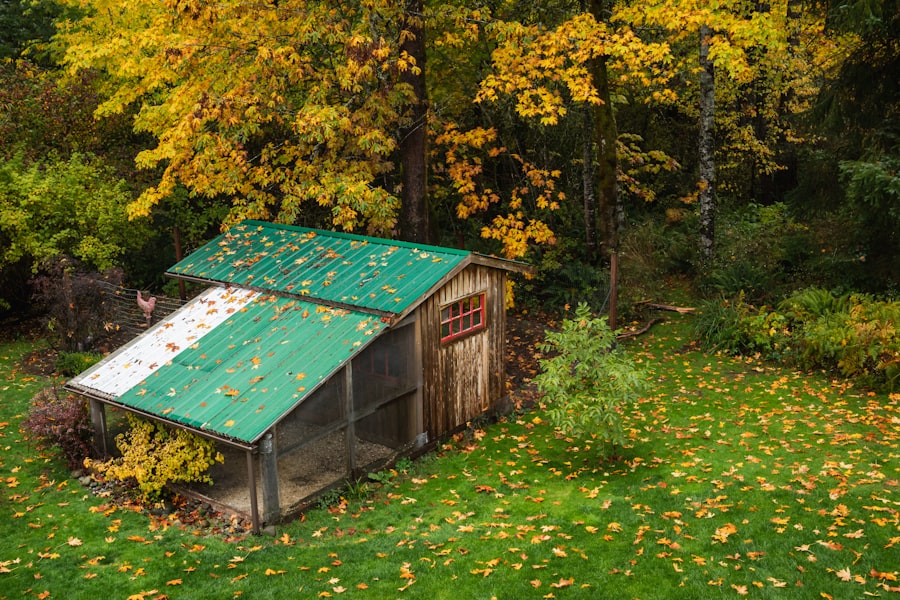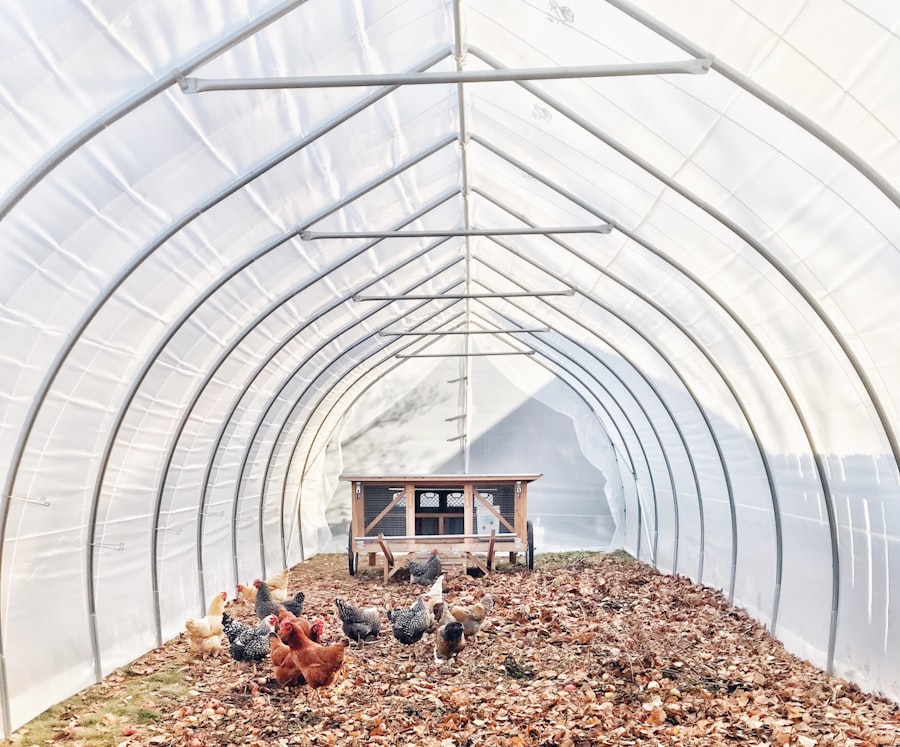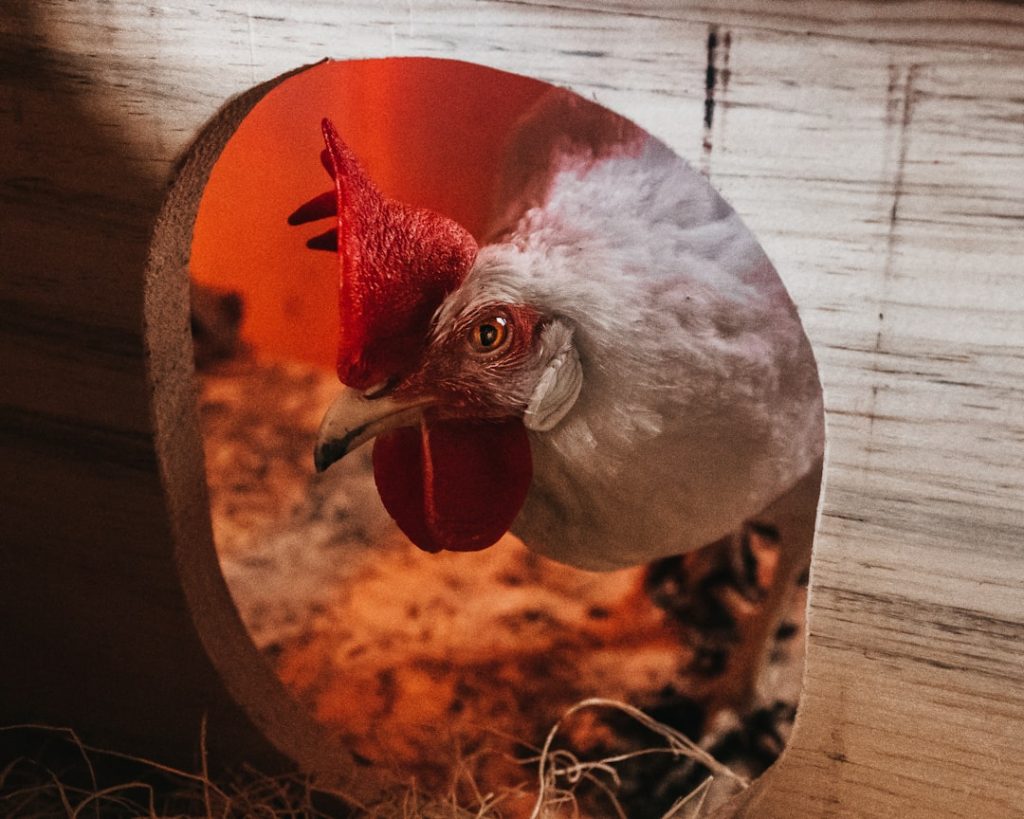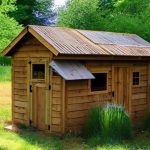Raising chickens presents both rewards and challenges, with predators and diseases being significant threats to chicken coops. Predators such as foxes, raccoons, hawks, and domestic dogs are attracted to coops by food odors and the presence of chickens. Maintaining a clean coop and securing it against intruders are essential preventive measures.
Diseases pose another serious risk to chicken flocks. Avian flu, Newcastle disease, and Marek’s disease are examples of illnesses that can rapidly spread among chickens. Effective disease management involves regular health monitoring, vaccination programs, quarantine procedures for new birds, and maintaining proper hygiene within the coop.
To ensure the well-being of a chicken flock, owners must remain vigilant against these threats and implement appropriate safeguards. This includes secure coop construction, regular cleaning, proper nutrition, and adherence to recommended health protocols. By addressing these potential hazards, chicken owners can create a safer environment for their birds and increase the likelihood of a successful and enjoyable chicken-raising experience.
Table of Contents
- 1 Securing the Coop
- 2 Predator Deterrents
- 3 Supervised Free Range Time
- 4 Providing Shelter and Cover
- 5 Monitoring the Flock
- 6 Building a Strong Flock Community
- 7 FAQs
- 7.1 What are the potential threats to free range chickens?
- 7.2 How can I keep free range chickens safe from predators?
- 7.3 What measures can I take to prevent diseases and parasites in free range chickens?
- 7.4 How can I ensure the safety of free range chickens during extreme weather conditions?
- 7.5 Are there any specific breeds of chickens that are better suited for free ranging?
Key Takeaways
- Understanding the Threats: Identify potential predators and risks to the coop such as weather, disease, and theft.
- Securing the Coop: Use sturdy materials and locks to prevent unauthorized access and reinforce weak spots in the coop.
- Predator Deterrents: Install motion-activated lights, sound devices, and fencing to deter predators from approaching the coop.
- Supervised Free Range Time: Allow chickens to roam in a secure area while being supervised to prevent attacks from predators.
- Providing Shelter and Cover: Ensure the coop and surrounding area offer adequate shelter and hiding spots for chickens to escape from predators.
Securing the Coop
Structural Integrity
One of the first steps in securing the coop is to ensure that it is well-built and in good repair. This means checking for any holes or gaps in the walls or roof that could allow predators to gain access to the coop.
Secure Entry Points
It’s also important to make sure that the coop has a secure door that can be locked at night to keep predators out. In addition to a secure structure, it’s important to consider other security measures such as installing predator-proof fencing around the perimeter of the coop. This can help to keep out ground-dwelling predators such as foxes and raccoons.
Additional Security Measures
It’s also a good idea to install wire mesh over any windows or vents to prevent predators from gaining access through these openings. Finally, consider adding motion-activated lights or alarms to deter predators from approaching the coop at night.
Predator Deterrents

In addition to securing the coop, there are a number of predator deterrents that can help to keep your flock safe. One effective deterrent is the use of guard animals such as dogs or geese. These animals can help to protect the flock by alerting you to the presence of predators and by chasing them away.
Another effective deterrent is the use of predator scent repellents, such as coyote urine or predator scent granules. These products can be sprinkled around the perimeter of the coop to create a barrier that predators will be reluctant to cross. Another effective predator deterrent is the use of motion-activated sprinklers or noise makers.
These devices can startle predators and discourage them from approaching the coop. Additionally, consider using decoy predators such as fake owls or snakes to create the illusion that the area is already occupied by a larger predator. Finally, consider using electric fencing as a deterrent for ground-dwelling predators.
This type of fencing delivers a mild electric shock to any predator that tries to climb or dig under it, effectively keeping them at bay.
Supervised Free Range Time
While it’s important to keep your flock safe within the confines of the coop, it’s also beneficial for chickens to have some supervised free range time outside of the coop. This allows them to forage for insects and plants, get some exercise, and enjoy some fresh air and sunshine. However, it’s important to supervise free range time to ensure that your chickens are safe from predators and other threats.
When allowing your chickens to free range, consider doing so during daylight hours when predators are less active. Additionally, consider using temporary fencing or netting to create a safe area for your chickens to roam. This can help to keep them contained and protected from predators while still allowing them some freedom to explore.
Finally, consider using a chicken tractor or portable coop that can be moved around the yard to provide your chickens with fresh foraging opportunities while keeping them safe from predators.
Providing Shelter and Cover
In addition to securing the coop, it’s important to provide your flock with shelter and cover within their outdoor space. This can help to protect them from predators as well as from the elements. Consider providing natural cover such as bushes, shrubs, or trees where your chickens can seek refuge if they feel threatened.
Additionally, consider providing artificial shelters such as chicken tunnels or covered runs where your chickens can go for protection. It’s also important to provide your chickens with access to clean water and shade during hot weather. This can help to prevent heat stress and dehydration, which can be serious threats to your flock.
Consider providing shade cloth or umbrellas in their outdoor space to create shady areas where they can escape the heat. Additionally, make sure that their water supply is kept clean and cool, and consider adding electrolytes or vitamins to their water during periods of extreme heat.
Monitoring the Flock

Flock Health and Behavior
Additionally, keep an eye out for any signs of illness or disease within the flock, such as lethargy, loss of appetite, or unusual droppings.
Coop and Outdoor Space Maintenance
It’s also important to monitor the condition of the coop and outdoor space regularly. Check for any signs of damage or wear that could compromise the security of the coop, and make any necessary repairs promptly.
Predator Activity and Prevention
Additionally, keep an eye out for any signs of predator activity around the coop, such as tracks or droppings. By staying vigilant and monitoring your flock and their environment regularly, you can help to identify and address potential threats before they become serious problems.
Building a Strong Flock Community
Finally, building a strong flock community can help to protect your chickens from threats such as predators and disease. Chickens are social animals that thrive in a group environment, so it’s important to provide them with plenty of opportunities for social interaction. This can help to reduce stress within the flock and promote overall health and well-being.
One way to build a strong flock community is by introducing new birds gradually and carefully monitoring their interactions with existing flock members. This can help to prevent aggression and bullying within the flock. Additionally, provide plenty of space within the coop and outdoor area so that all members of the flock have room to move around and establish their own territories.
Another way to build a strong flock community is by providing enrichment activities such as perches, dust baths, and toys that encourage natural behaviors and keep your chickens engaged and active. This can help to reduce boredom and stress within the flock, which in turn can help to prevent behavioral issues and health problems. In conclusion, raising chickens comes with its fair share of challenges and threats, but by understanding these threats and taking proactive measures to secure the coop, deter predators, provide shelter and cover, supervise free range time, monitor the flock, and build a strong flock community, you can help to keep your chickens safe and healthy.
By staying vigilant and proactive in protecting your flock, you can create a safe and enjoyable environment for both you and your feathered friends.
If you’re looking for ways to keep your free range chickens safe, you may want to consider learning about the benefits of having quails in your flock. According to a recent article on Poultry Wizard, quails are known for their ability to sit on their eggs, which can be a helpful trait for keeping your chicken eggs safe and warm. To learn more about the benefits of having quails in your flock, check out this article.
FAQs
What are the potential threats to free range chickens?
Free range chickens are at risk from predators such as foxes, raccoons, hawks, and even domestic dogs. They are also vulnerable to diseases, parasites, and extreme weather conditions.
How can I keep free range chickens safe from predators?
To protect free range chickens from predators, it is important to secure their coop with sturdy fencing and locks, provide a safe shelter for them to retreat to at night, and use deterrents such as motion-activated lights or sound devices.
What measures can I take to prevent diseases and parasites in free range chickens?
To prevent diseases and parasites in free range chickens, it is important to maintain a clean and dry living environment, provide regular veterinary care, and practice good biosecurity measures such as limiting exposure to other birds and animals.
How can I ensure the safety of free range chickens during extreme weather conditions?
To ensure the safety of free range chickens during extreme weather conditions, provide adequate shelter and protection from harsh winds, rain, and extreme temperatures. It is also important to provide access to fresh water and food during such conditions.
Are there any specific breeds of chickens that are better suited for free ranging?
Certain breeds of chickens, such as Rhode Island Reds, Sussex, and Orpingtons, are known to be more independent and better suited for free ranging. However, the safety of free range chickens ultimately depends on the measures taken to protect them from potential threats.
Meet Walter, the feathered-friend fanatic of Florida! Nestled in the sunshine state, Walter struts through life with his feathered companions, clucking his way to happiness. With a coop that’s fancier than a five-star hotel, he’s the Don Juan of the chicken world. When he’s not teaching his hens to do the cha-cha, you’ll find him in a heated debate with his prized rooster, Sir Clucks-a-Lot. Walter’s poultry passion is no yolk; he’s the sunny-side-up guy you never knew you needed in your flock of friends!







